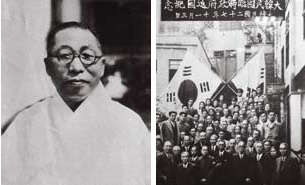Tea therapy is one of the health destinations in South Korea that you must visit
Who
among you doesn't know tea, tea is a drink that contains caffeine, an infusion
made by brewing dried leaves, leaf tips, or petioles from the Camellia sinensis
plant with hot water. Teas derived from the tea plant are divided into four
groups: black tea, oolong tea, green tea, and white tea.
The
term "tea" is also used for drinks made from brewed fruit, spices or
other medicinal plants, for example, rosehip, camomile, chrysanthemum and
jiaogulan tea. Teas that do not contain tea leaves are called herbal teas.
Tea
is a natural source of caffeine, theophylline and antioxidants with levels of
fat, carbohydrates or protein close to zero percent. The slightly bitter taste
of tea is a distinct pleasure from tea.
If
you visit South Korea don't forget to visit this one tourist destination,
namely Tea Therapy, this place has two branches, the Apgujeong (Main) Branch
and the Haengrang Branch.
Koreans
have enjoyed herbal teas for a long time, from barley tea to corn, boxthorn,
and Solomon's seal. At Tea Therapy, you can comfortably try traditional teas
which only require hot water and take three minutes. All the ingredients that
are put into the tea are prepared on the spot. If you're not sure which tea to
choose, try a simple test at Tea Therapy. There are several types of tea that
are suitable for you, depending on whether you are a heavy person, the way you
walk or what your digestion is like. Each tea has its own description. If you
have pain behind your eyes or in your shoulders due to stress, try a local
"Hyangtong" tea. If you are uptight all the time and can't sleep
well, try "Anshim" tea with jujube.
Apart
from tea, Tea Therapy offers a special lunch menu. The food offered is healthy
food, available from 12:30 to 14:00. The menu includes tofu and flying fish roe
salad, mushroom taco rice, salmon rice, beef and bean curry. And all menus
include side dishes, soup, tea and a small salad.
The
Haengrang branch is part of the restored home of the Yun Posun birthplace,
which has been selected as a cultural asset. Hence, this facility is surrounded
by a classic atmosphere. In one corner near the entrance, you will find the
foot bath zone. This place is a cozy healing room where you can enjoy tea while
washing your feet. It feels very nice to relax while drinking aromatic tea or
reading a book. Foot baths are available to anyone who orders tea, but foot
bath products can be obtained at an additional charge of 5,000 won.
Type
A foot bath products are effective for eye pressure and headaches, and Type B
foot bath products are good for you if you feel heavy and your circulation is
poor. Tea Therapy also offers tea classes for those who are interested. Topics
on offer include "tea therapy for stress" or "tea is good for
women" and are easy to understand. The program also includes informative
stories and tea tasting. For example, "tea therapy for stress" talks
about 10 different ingredients that reduce stress, such as mint, betony, tangerine
peel and chrysanthemum. The class ends with a tea tasting. This is an
opportunity to get to know tea more easily and in a fun way.




Komentar
Posting Komentar